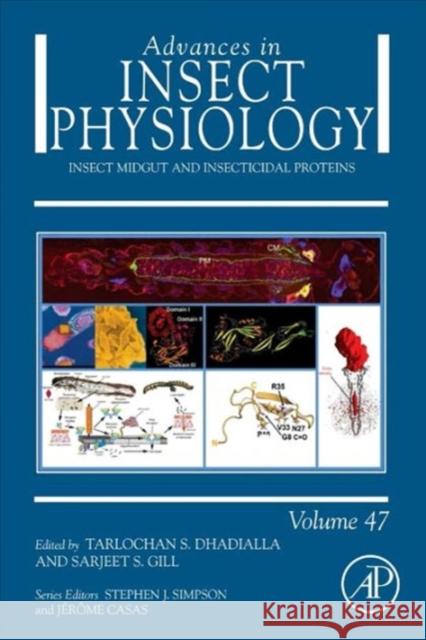Insect Midgut and Insecticidal Proteins: Volume 47 » książka
topmenu
Insect Midgut and Insecticidal Proteins: Volume 47
ISBN-13: 9780128001974 / Angielski / Twarda / 2014 / 423 str.
This volume of Advances in Insect Physiology contains comprehensive interdisciplinary reviews on basic and practical aspects relevant to Insect Midgut and Insecticidal Proteins.
- Contains important, comprehensive and in-depth reviews
- An essential reference source for invertebrate physiologists and neurobiologists, entomologists, zoologists, and insect biochemists
- First published in 1963, this serial is ranked second in the highly competitive ISI category of Entomology











